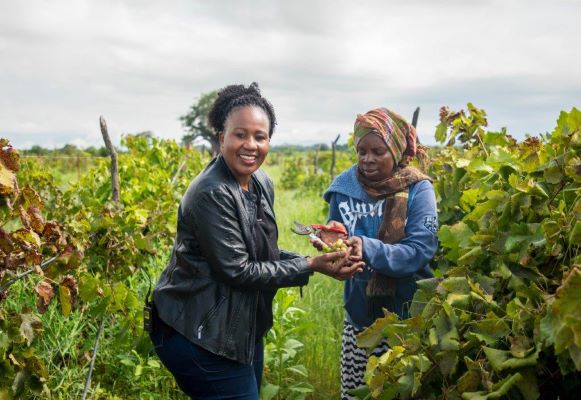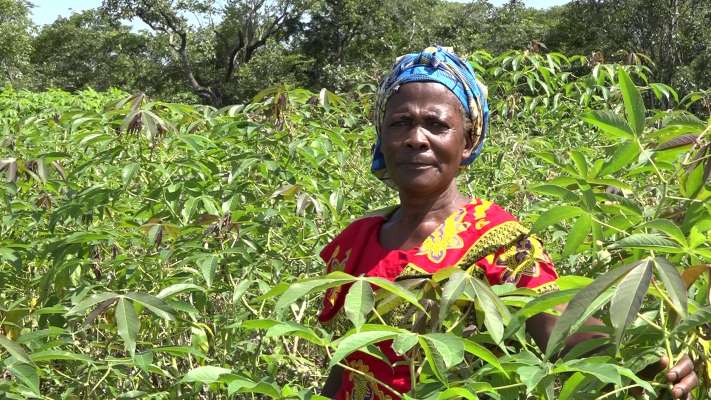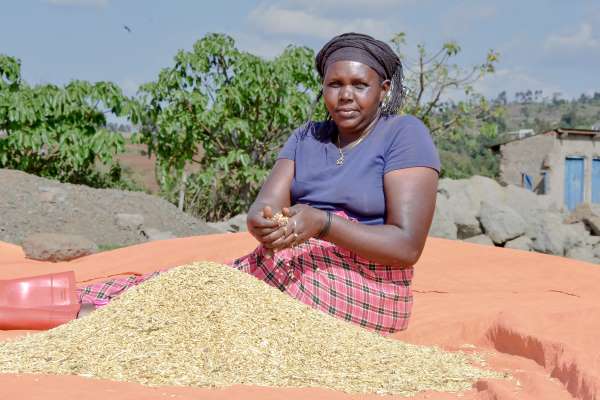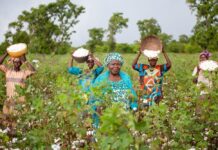For its production and brewing activities, AB Inbev depends on high-quality agricultural crops from thriving communities and healthy ecosystems. Taking a farmer-centric approach in its commitment to supporting sustainable agriculture supply chains, AB Inbev, through its agronomists, researchers and partners, pursues its goal that 100% of direct farmers are skilled, connected and financially empowered by 2025.
Women play a vital role in driving local economic development, and yet, in many communities across the globe, they lack access to the training, tools and finance needed to grow their businesses. AB InBev’s agricultural support programmes, directly targeting our female farmers, have been responsible for improving the economic circumstances of individuals, families and communities across Africa.
As the world celebrates International Women’s Day this week we take a look at how the global brewer is empowering women across its value chain.
Ugandan barley
In Uganda, AB Inbev’s Sustainable Barley Programme, through its Ugandan subsidiary Nile Breweries Limited (NBL), has been active since 2019. The programme aims to ensure that this vital raw material is produced in a sustainable and responsible way to ensure long-term benefits for local farmers and ABInBev.
In the three years since the programme inception, nearly 10 000 female farmers have benefited from financial training, sharing of best agricultural practices, improved access to market and resources, and the development of voluntary savings and loan associations (VSLAs).
Ainomughisha Siria, from Bishaki Village in Uganda’s Rubanda District, grows beans and barley. After NBL rolled out training initiatives to capacitate local farmers, Ms Siria was trained in proper agronomic practices. As a result her yield has increased, she has been able to fund the growth of her agri-shop business and pay for household expenses.
Winnie Chelimo is a barley and timber farmer from Chepkwutar village, in the Kapchorwa Municipality. Before the advent of the Sustainable Barley Programme the farmers in her community struggled to market their crops, prices were low, and the level of knowledge around farming practices was limited. Today, buying centres near the farms provide dependable markets and the farmers are well capacitated with training from NBL’s agronomic officers. As a result, Ms Chelimo explains, “The barley programme has had a huge impact on my livelihood. Through barley farming I was able to get money to take my children to school, fund my timber business, feed my family and buy clothing. My farm acreage has expanded from two to six acres, and I continue to see a bright future for further growth.”
Tanzanian grapes

In Tanzania, Tanzania Distilleries Limited (TDL) is a subsidiary of Tanzania Breweries Limited (TBL). TDL is the largest wine producer in Tanzania and the largest consumer of grapes in the country. TDL has been pioneering the development of the Tanzanian wine industry, a commitment which includes the support of local grape farmers.
In 2011 Evelyne (Eva) Hilda Madeje, one of the farmers supported by TDL, inherited a five-acre piece of land in Dodoma – the heart of Tanzanian wine – from her mother, and then slowly started to build on this plot. The now 26-acre sprawling farm is today managed by Evelyne’s daughters. Eva’s farm is currently the only women-owned farm larger than five acres, and one of the largest producing vineyards in Dodoma belonging to one family. Eva’s farm has also been reviewed by Tanzania Tourist Board as a possible destination for vineyard tourism, which holds great potential as Tanzanian wine increasingly draws local and international attention.
“In farming, information is key,” says Irene Madeje-Mlola, Eva’s daughter who runs the family farm. “We receive regular visits from TDL experts to support us with oversight of our crop, consultation on pesticides and fertilizers, support during harvesting and pruning etc. This program has been a key pillar in our expansion plan at Eva’s farm. Furthermore, in partnership with TDL we are conducting various experiments at our farm to test different methods of increasing productivity as well as managing damaged soil patches.”
Zambian cassava

Zambian Breweries (Plc)’s cassava programme aims to boost production of the crop by harnessing the potential of farmers in rural areas and equipping them with the technical and financial skills required to run a thriving venture at whatever stage they are at. Platforms such as its BanQu automated payment system enable farmers receive prompt payment and keep track of transactions.
For sixty-one-year-old Idah Kombe Simwela, growing produce on a large, let-alone commercial scale, was something previously thought to be unattainable. But with growing support and interventions from private sector players such as Zambian Breweries (Plc), she and other women are able to cash in on unassuming crops, such as cassava, in a quest to better their livelihoods and those of their families.
“I belong to a registered women’s group called Twafweniko. Through the cooperative we were able to start gardens, keep chickens for sale as well as do village banking. This has helped us a lot and we are also able to even give ourselves some loans,” says Idah.
Over the years of farming Idah has come to realise just how much access to reliable information can be a game-changer for farmers like her: “We used to waste a lot of agricultural land by not using it efficiently but now we have been guided on how to prepare ridges better, rather than the unnecessarily big ones and wider spacing we used to use.”
“Before we plant we are guided on how to prepare and plant the cassava stems. We are met physically for training but also we do receive mobile text messages on how to manage our crop better on our own. ”
Empowering female farmers
Women play an important role in the agriculture industry, and we remain committed to empowering female farmers by incorporating initiatives that will promote gender equality, impart agronomic information, improve business and financial skills development and provide access to training to improve crop yields and quality harvests.
We want to especially honour each woman making a contribution to the agriculture and food industries, as well as to our supply chains across Africa. Without them, we have no quality crop and no quality beer. So here’s to our women in agriculture and a future with more cheers!









